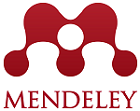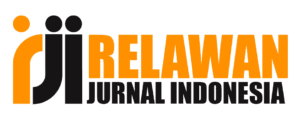Analisis Evaluasi Website Kalam UMI Berbasis Framework ISO/IEC 25010 Dengan Metode Goal Question Metric
Analysis of Kalam UMI Website Evaluation Based on ISO/IEC 25010 Framework with Goal Question Metric Method
Abstract
In this digital era, people cannot be separated from the unlimited need for information and communication thanks to the internet. One of the learning systems that utilizes technology is the Learning Management System (LMS). LMS is a technology system to manage and support the learning process, distribute lecture materials, and enable collaboration between lecturers and students. Universitas Muslim Indonesia (UMI) has an LMS called Kalam. The use of a system that is very intensive used by lecturers and students causes the need for evaluation to improve the quality of the learning process. ISO/IEC 25010 has become a standard recommendation because it has all the characteristics and sub-characteristics required for information system quality compared to other models. In this study, researchers used the Goal Question Metrics (GQM) method according to the characteristics based on the ISO/IEC 25010 framework in measuring the quality of the Kalam UMI website software. The evaluation of the Kalam UMI website on several characteristics has been included in the good and very good categories, but in security characteristics, there are sub-characteristics that still need to be improved, namely integrity with a percentage of 66.67%.
The quality sub-characteristics that have been categorized as good and very good are completeness of functionality with a percentage of 89.28%, correctness of functionality with a percentage of 93.75%, suitability of functionality with a percentage of 75%, confidentiality with a percentage of 75%, non-repudiation with a percentage of 100%, accountability with a percentage of 100%, authenticity with a percentage of 100%, effectiveness with a percentage of 82.96%, efficiency with a percentage of 83.06%, usability with a percentage of 84.47%, Trust with a percentage of 81.67%, pleasure with a percentage of 81.67%, comfort with a percentage of 86.46%, economic risk mitigation with a percentage of 88.75%, health and comfort mitigation with a percentage of 85.21%, environmental risk mitigation with a percentage of 90%, and flexibility with a percentage of 83.54%.
References
Darwiyanto, H. A. and E. (2019). Evaluasi Kualitas Website Bandung Smart City Menggunakan ISO/IEC 25010 Quality-In-Use Model.
Fitriani, Y. (2020). Analisa Pemanfaatan Learning Management System (LMS) sebagai Media Pembelajaran Online selama Pandemi Covid-19. J. Inf. Syst. Inform. Comput., 4.
G. Ursachi, I. A. Horodnic, and A. Z. (2015). How Reliable Are Measurement Scales? External Factors with Indirect Influence On Reliability Estimators. Procedia Econ, 20, 679–686. https://doi.org/10.1016/S2212-5671(15)00123-9
J. Calabrese, R. Muñoz, A. Pasini, S. Esponda, M. Boracchia, and P. P. (2018). Assistant for The Evaluation of Software Product Quality Characteristics Proposed by ISO/IEC 25010 based on GQM-Defined Metrics. Springer International, 790. https://doi.org/10.1007/978-3-319-75214-3_16
M. D. Mulyawan, I. B. A. Swamardika, and K. O. S. (2021). Analisis Kesesuaian Fungsional Dan Usability Pada Sistem Informasi Karma Simanis Berdasarkan ISO/IEC 25010. J. Teknol.
M. D. Mulyawan, I. N. S. Kumara, I. B. A. Swamardika, and K. O. S. (2021). Kualitas Sistem Informasi Berdasarkan ISO/IEC 25010: Literature Review. Maj. Ilm. Teknol. Elektro, 20.
R. G. Utomo, G. Wills, and R. W. (2021). Developing an Instrument to Measure Information Assurance Implementation for Egovernment Using Goal Question Metric Approach. Game Technol. Inf. Syst. Comput. Netw. Comput. Electron. Control. https://doi.org/10.22219/Kinetik.V6i2.1200
Rahman, A. A. (2020). Quality Consideration for E-Learning System Based On ISO/IEC 25000 Quality Standard.
S. Kemp. (2022). Datareportal – Global Digital Insights. Digital. https://datareportal.com/Reports/Digital-2022- Indonesia
Vivianti, N. L. F. and V. (2022). Upgrading The Web-Based Credit Score Calculation System. Iptek J. Technol, 33.









